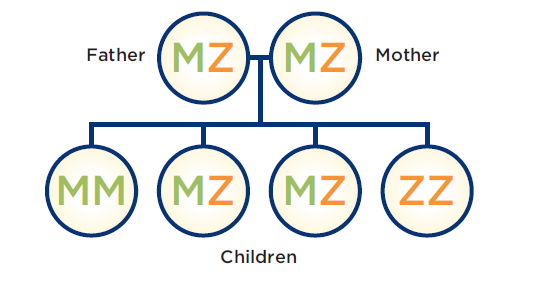What is Alpha-1 Antitrypsin Deficiency?
Contact Information / Resources
Diane Knight BS, RRT
Erlanger Heart and Lung Institute
Alpha-1 Program Clinical Coordinator
Office: 423-778-2322
Email: [email protected]
Erlanger Respiratory Therapy Navigators Office: 423-778-7745
Lead office: 423-778-3009
Email: [email protected]
Chattanooga Alphas Support Group
Jason Medeiros, Support Group Leader
Phone: 423-322-8617
Email: [email protected]
Diane Young, Support Group Leader
Phone: 706-978-2381
Email: [email protected]
Alpha-1 Antitrypsin Deficiency (Alpha-1) is a condition people are born with. Alpha-1 can cause liver disease in infants, children or adults and lung disease in adults.
One major function of the Alpha-1 protein is to travel from the liver to the lungs to protect the lungs from being damaged. In people with Alpha-1, the protein is either misshapen or non-functioning. Either way, the protein cannot protect your lungs and sometimes causes liver problems. Just because someone has Alpha-1 does not mean they will definitely have liver or lung problems.
Alpha-1 increases the risk of developing liver and lung problems so it is important to understand the symptoms, and to know what you can do to help keep your liver and lungs healthy.
What are the Symptoms of Alpha-1?
Alpha-1 is often misdiagnosed as asthma or Chronic Obstructive Pulmonary Disease (COPD).
Lung Related Symptoms include
- Shortness of breath
- Wheezing
- Chronic Bronchitis
- Recurring chest colds
- Year-round allergies
- Bronchiectasis
Liver Related Symptoms include:
- Unexplained liver disease or elevated liver enzymes
- Eyes and skin turning yellow (jaundice)
- Swelling of the abdomen (ascites) or legs.
Genotyping is Important – Because Alpha-1 runs in families
Alpha-1 is an inherited condition that is passed down through genes from one generation to the next. People with Alpha-1 have genetic mutations called alleles. While there are other alleles, the three most common alleles are M, Z and S. M is the normal allele while Z and S are examples of the two most common mutations that cause the deficiency.
People with a combination of the normal M allele and a mutation are carriers (MZ for example). A carrier for Alpha-1 usually doesn’t get sick, but may have health effects if they are exposed to harmful irritants. If someone inherits two copies of the mutation then they have Alpha-1 Antitrypsin Deficiency.
Family testing for Alpha-1 is key and could improve the lives and health of the people you love. If you have Alpha-1 Antitrypsin deficiency (Alpha-1), or if you are an Alpha-1 carrier, consider having your relatives tested.
- MM: NORMAL – Does not have the disorder and does not carry any altered AAT genes.
- MZ: CARRIER – Mild to moderate AAT deficiency, may develop disease symptoms and does carry an altered AAT gene.
- ZZ: Severely DEFICIENT – Could develop disease and carries two altered AAT genes.
Testing for Alpha-1: Who should be tested?
The Alpha-1 Foundation encourages testing for Alpha-1 among those at high risk for this genetic disorder. Early diagnosis can help an Alpha consider different Lifestyles, professions or other personal decisions that could maintain or improve their health.
- Anyone who has COPD (emphysema and/or chronic bronchitis, regardless of age or ethnicity).
- Anyone with unexplained liver disease.
- Anyone with necrotizing panniculitis, Granulomatosis with polyangiitis, or unexplained bronchiectasis.
- Parents, siblings and children, as well as extended family members, of people who have been identified with an abnormal gene for Alpha-1, should be provided genetic counseling and offered testing for Alpha-
- For family testing, it is suggested that the genotyping be completed (instead of serum protein level testing).
- For family testing, people who have lung or liver symptoms should have genotyping that screens for the S and Z alleles (at least).


